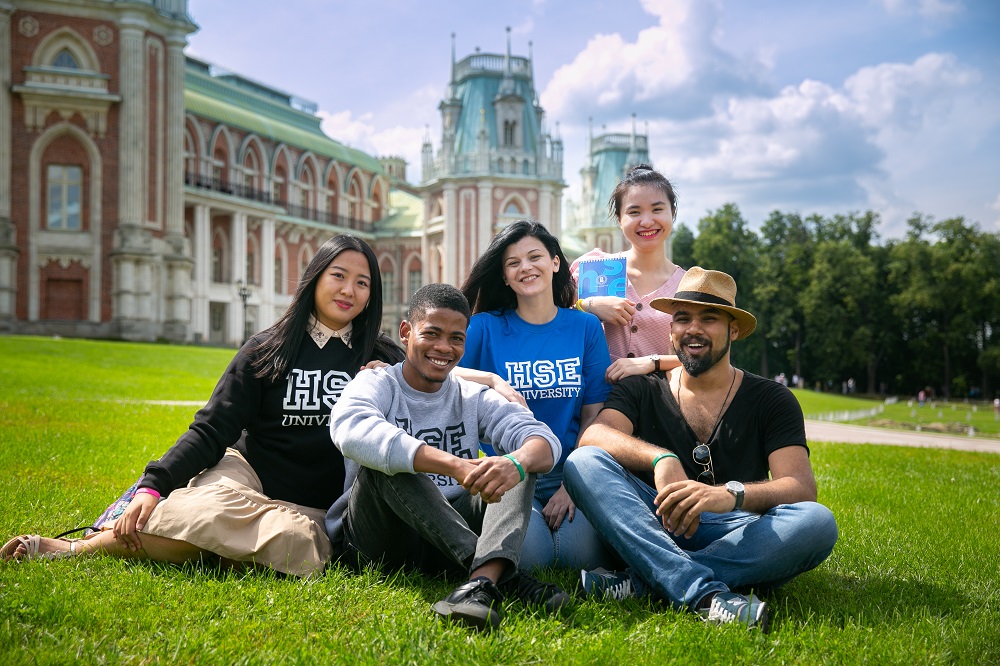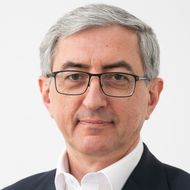HSE Summer University 2020 to Be Held Online

HSE Summer University will begin on July 15 this year. All courses will be taught online via Zoom. The registration deadline has been extended until July 1, 2020.
HSE Summer University offers students from all over the world a unique opportunity to take courses across a variety of disciplines, including Russian as a Foreign Language, Politics and International Relations, Economics, and more. Students can earn ECTS credits, learn more about the culture, economics, and politics of Russia, and study in a multicultural environment.

Ivan Prostakov, HSE Vice Rector
At HSE University, like in many other universities in the Northern Hemisphere, the academic year is coming to a close. It has turned out to be a difficult and unusual time for all of us but we have proved that the best academic traditions of universities remain unchanged, including the desire to open new horizons in research and study, to take advantage of new opportunities in a changing world, and to seek new partners and like-minded people in other countries.
As in previous years, you will find a rich programme of courses taught by HSE University’s best instructors. Yes, this year we are conducting Summer University online, but this only means that we will all get an unusual and useful experience on top of new knowledge and communication in a multicultural environment. We are certain that HSE Summer University online will not only help us overcome current difficulties, but also provide everyone with the opportunity to meet and get to know each other offline in the very near future.
The list of all of the University’s course offerings for Summer 2020 is available here. The timetable will be finalized in July, after the registration period closes. Сlasses will be scheduled to accommodate students from different time zones.
According to Oksana Chernenko, Director of the Summer University programme, the courses will be worth the same number of ECTS credits as in previous years. However, the duration of each course may change depending on the composition of the group and the demands of online learning. ‘With remote teaching, It is impossible to schedule two 90 minute classes back-to-back—it simply won’t be productive—so we are thinking of breaking up the courses into shorter sessions, more suited for an online format. What’s more, if a course attracts students from different time zones, we will have to take that into account.’
Students wishing to take the ‘Russian as a Foreign Language’ course will be tested and divided into groups based on their levels of language proficiency. HSE Russian language instructors already have experience teaching online since the HSE International Preparatory Programmes, where Russian as a Foreign Language is taught, transitioned to remote instruction this March.
In addition to an extensive academic programme, Summer University students will be able to join informal social gatherings on Zoom. Last year, students of the HSE School of Foreign Languages prepared a series of games and Moscow tours as part of orientation sessions for arriving international students. This year, Russian culture and history quiz games will be held online and everyone will have a chance to participate.
Upon completion of Summer University coursework, participants will receive an official HSE certificate of participation.

Professor Fuad Aleskerov, Faculty of Economic Sciences
Course: ‘Advances in Decision Making Theory and Applications’
There will be no changes made to the topics covered in this course. The course presents the core concepts of rational and efficient individual and social decisions, including political decisions. We make decisions every day and every hour: which summer school to choose, what shirt to buy, where to go on vacation. During the course, we will look at various aspects of decision making, aggregation and applied decision-making models, political decision making, including voting manipulation, and organizational power distribution.
Due to the present circumstances, I will give lectures online on Zoom. All materials (including the presentations, articles, and necessary references) will be distributed to students after each lecture. We are going to hold additional consultation sessions for students after each lecture if necessary. We will discuss many real-life problems during the online sessions, and students will get similar problems as home assignments.

Professor Iliya Kiriya, Faculty of Communications, Media, and Design
Course: ‘Fake News, Post-Truth and Digital Media: the Relationship between Media and Politics
Since my course deals with fake news and touches upon populism in media culture, this year I decided to use a wide range of examples from the coverage of the COVID-19 pandemic. In fact, the pandemic has laid bare the ways in which fake news spreads. We have witnessed mass panic caused, among other things, by false news and rumors spreading virally on social media. That is, the virus has made the viral distribution of news even more potent. On the other hand, the pandemic has become good training grounds for strengthening the power of populist politicians by allowing them to quickly demonstrate their efforts to curb the spread of the disease in their regions.
We will analyze the situation from the perspective of media effect theories and the connection of media, politics, and popular culture. As the Summer University will be held online, we plan to prepare various kinds of interactive activities (quizzes, examples, and cases) so that the online lectures are engaging. At the end of the course, students will need to develop their own fake news, along with a dissemination strategy, and then neutralize it.
Fuad T. Aleskerov
Professor, Faculty of Economic Sciences
Ilya Kiriya
Professor, Faculty of Communications, Media, and Design
Ivan Prostakov
HSE University Vice Rector
Oksana Chernenko
Summer University Director
